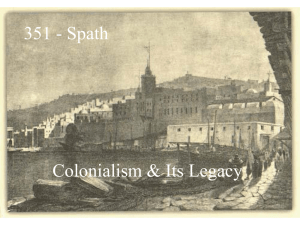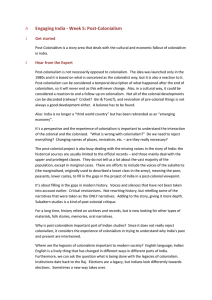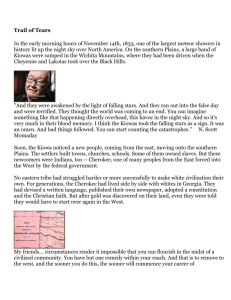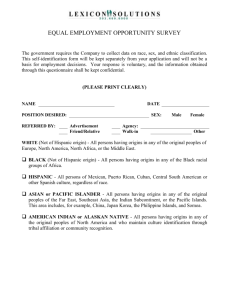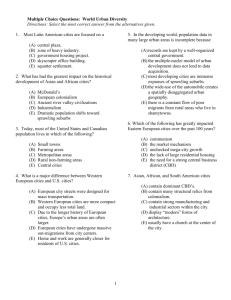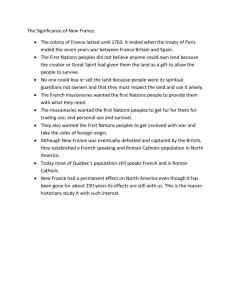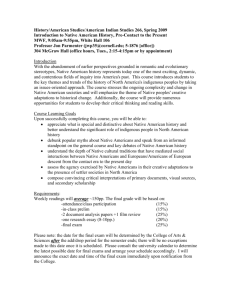Native American Literature will introduce students to the history
advertisement
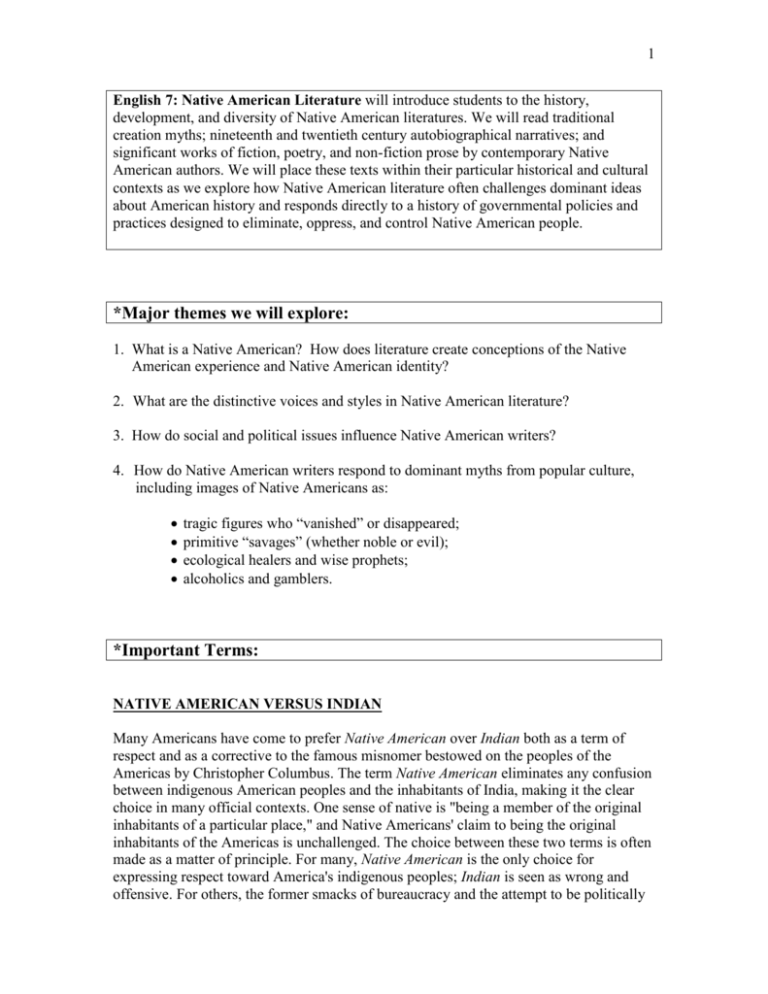
1 English 7: Native American Literature will introduce students to the history, development, and diversity of Native American literatures. We will read traditional creation myths; nineteenth and twentieth century autobiographical narratives; and significant works of fiction, poetry, and non-fiction prose by contemporary Native American authors. We will place these texts within their particular historical and cultural contexts as we explore how Native American literature often challenges dominant ideas about American history and responds directly to a history of governmental policies and practices designed to eliminate, oppress, and control Native American people. *Major themes we will explore: 1. What is a Native American? How does literature create conceptions of the Native American experience and Native American identity? 2. What are the distinctive voices and styles in Native American literature? 3. How do social and political issues influence Native American writers? 4. How do Native American writers respond to dominant myths from popular culture, including images of Native Americans as: tragic figures who “vanished” or disappeared; primitive “savages” (whether noble or evil); ecological healers and wise prophets; alcoholics and gamblers. *Important Terms: NATIVE AMERICAN VERSUS INDIAN Many Americans have come to prefer Native American over Indian both as a term of respect and as a corrective to the famous misnomer bestowed on the peoples of the Americas by Christopher Columbus. The term Native American eliminates any confusion between indigenous American peoples and the inhabitants of India, making it the clear choice in many official contexts. One sense of native is "being a member of the original inhabitants of a particular place," and Native Americans' claim to being the original inhabitants of the Americas is unchallenged. The choice between these two terms is often made as a matter of principle. For many, Native American is the only choice for expressing respect toward America's indigenous peoples; Indian is seen as wrong and offensive. For others, the former smacks of bureaucracy and the attempt to be politically 2 correct, while the latter is the natural English term. This controversy appears to have subsided somewhat in recent years, and it is now common to find the two terms used interchangeably in the same piece of writing. While generally welcoming the respectful tone of Native American, most Indian writers have continued to use the older name at least as often as the newer one. Native American and Indian are not exact equivalents when referring to the aboriginal peoples of Canada and Alaska. Native American, the broader term, is properly used to refer to all such peoples, whereas Indian is customarily used to refer to the northern Athabaskan and Algonquian peoples in contrast to the Eskimos, Inuits, and Aleuts. COLONIALISM A political-economic phenomenon whereby various European nations explored, conquered, settled, and exploited large areas of the world. The purposes of colonialism included economic exploitation of the colony's natural resources, creation of new markets for the colonizer, and extension of the colonizer's way of life beyond its national borders. INTERNAL COLONIALISM Internal Colonialism refers to political and economic inequalities between regions within a single society. The term may be used to describe the exploitation of minority groups within the wider society. The relationship between colonizer and colony is similarly unequal and exploitative in colonialism and internal colonialism. The members of the internal colonies are distinguished as different by a cultural variable such as ethnicity, language, or religion. STEREOTYPE A simplified and standardized conception or image invested with special meaning and held in common by members of a group. HISTORY As historian Ray Kierstead has pointed out, history is not just “one damn thing after another”: rather, history is a way of telling stories about time or, some might say, making an argument about time. Finally, history is a crucial tool for understanding literature because literature is written within—and arguably often reflects—a specific historical context. Thus, we can view literature as both a product and producer of history. Literature can reshape how we understand history, by telling the stories of people previously 3 unacknowledged or marginalized in American culture.

